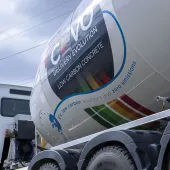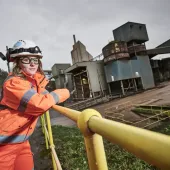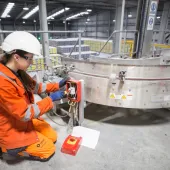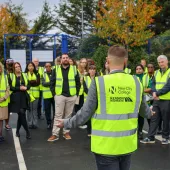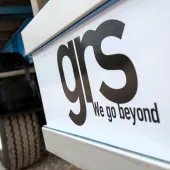The Skills Challenge: Looking at the bigger picture
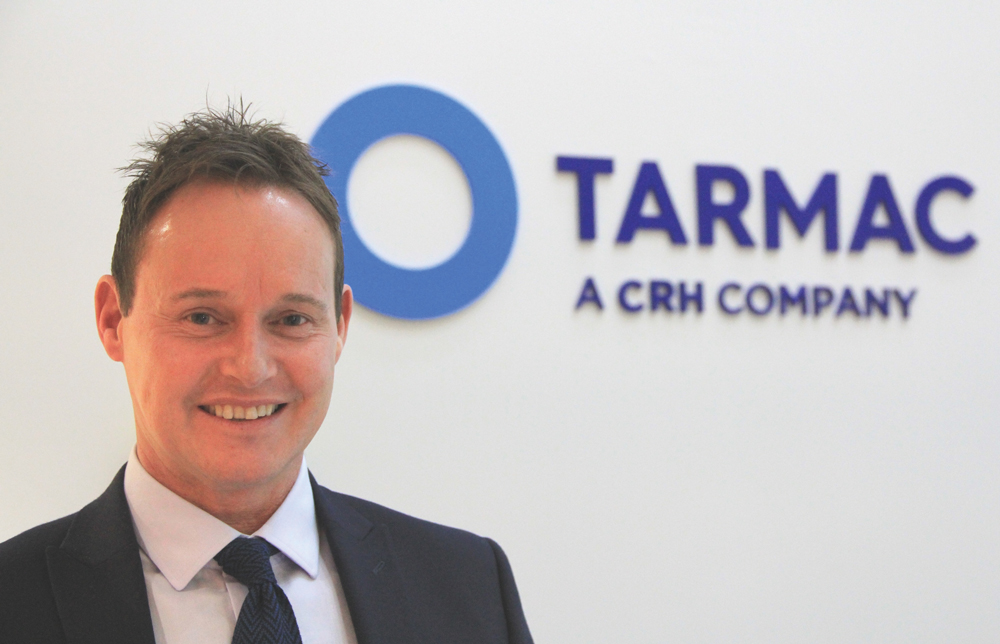
First published in the June 2016 issue of Quarry Management
By Martin Riley, senior vice-president, Tarmac
Think back over the past few years. How often have you read that the construction sector faces a ‘skills shortage’ or a ‘recruitment challenge’?
The Construction Industry Training Board recently said that 232,000 extra people are needed to deliver the UK’s infrastructure plans for the next five years. That is enough to fill Wembley Stadium nearly three times over. To put it another way, even if we recruited every man, woman and child in York into the sector, we would still be around 28,000 people short.
Can we recruit this many people? To stand a chance, we need to rethink how we position the sector and its skills narrative.
This matters more than ever because, with major projects coming on stream, the construction industry has much to deliver. These are exciting times – we need to convey that sense of excitement and opportunity, to ensure that current and future colleagues feel enthused and motivated about the careers and development that this industry offers.
Part of the solution is to invest in the country’s current construction workforce, develop our employees and make the most of their transferable skills, so they can be deployed against a wider range of roles. This investment in people will naturally support retention and advocacy. However, fundamentally, we – Tarmac and the wider industry – also need to do more to attract new talent.
Everyone in the sector has a real opportunity to shape the infrastructure of the future. We need people to be inspired by this idea of making your mark on UK construction – so we get the right numbers of people, in the right place, with the right skills, at the right time. But how to do that when construction is not viewed as an aspirational career choice by many young people?
At Tarmac, we have recently launched a careers campaign called ‘Make Your Mark’, which features real employees from Tarmac enthusing about their career journeys and progression, how they are helping to create a better society and shaping the infrastructure of the future.
For instance, we focus on how our director of lime and powders is ensuring that people have access to fresh water and vital medicines. We show how a general manager from our contracting team is promoting pride in local communities. And we highlight how one of our project managers is reinventing the way we construct our infrastructure.
This is not hyperbole but an accurate reflection of my colleagues’ roles, focusing on the inspirational and playing to the heart as well as the head.
And, although our campaign was launched in February, we are already seeing an increase in applications against previous years (visit: www.tarmaccareers.com for more information).
What about developing the skills of our best asset – our current workforce? We are delivering a series of important initiatives to help employees develop their skills and fulfil their potential. We have an excellent talent pool to work with and we have put in place initiatives across our operations to help people add to their existing skill sets.
We are actively supporting teams at our quarries to gain Technical Member Institute of Quarrying (TMIQ) status. It is an important technical standard and more than just an accreditation title because it acknowledges the skills and professional expertise of many roles within the quarrying industry that were previously not formally recognized. Not only does this help to create a real sense of pride in peoples’ jobs, it raises safety standards and makes them more committed to our industry in the long term.
But helping all of our employees to develop their skills and stay motivated will only work if we champion worker engagement.
Listening is a key social and business skill. But many experts believe that the digital era of endless stimuli have made us all become bad listeners. A bit harsh? Probably, but I firmly believe that better engagement with our teams starts by taking the time to listen to employees’ views.
Worker engagement is a key part of our managerial approach because it is integral to motivating employees so that they understand the role they play in delivering our commercial strategy. Engagement is essential to improving safety performance across our operations too. To help support our journey to zero harm, our health and safety leadership team are proactively listening and acting upon the views of employees from across our business.
The skills shortfall figures that dominate the national debate are undoubtedly significant. Our industry has a responsibility to reposition its offer, think creatively and make construction a more aspirational career.
Upskilling our existing talent is not a ‘sliver bullet’ to tackle the industry resource challenge. But it is critical to developing careers, retaining experienced professionals and making our people engaged advocates for the industry. Let us not lose sight of the need to attract new industry entrants, but we must also nurture our existing talent too.


